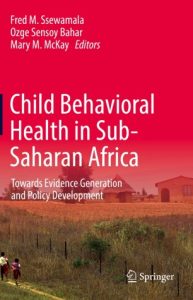Fatherhood is associated with responsibilities of love, care, and meeting children’s needs especially education. But how do Ugandan men measure up to these expectations?
Professor Rosalind Lubanga, a research associate at AfriChild posed this question to the Men Engage Network while presenting the findings of a study the Centre conducted to establish the impact of men’s active positive presence in the lives of children in Uganda.
Prof. Rosalind, the Principal Investigator made the presentation during the Men Engage Network Annual General Meeting held at the AIDS Information Centre in Kisenyi, Kampala.
The Men Engange Network brings together different institutions, CSOs, and individuals who work with men and boys to promote gender equality in Uganda. The network is part of the global men engage alliance.
Are fathers doing enough?
According to Prof. Rosalind, most fathers try their best to meet societal expectations but not wholly. Many fathers focus their attention mainly on providing education by paying school fees and providing scholastic materials. However, they spend minimal time with children at home. Some do not fully participate in school education programs such as visiting children at school to monitor children’s academic performance and discipline.
She further revealed that there were variations in the way fathers were present, active and positively managing their children. Some fathers were physically present but not active and positive to their children. Some fathers lived in distant places but kept being active and supportive to their children. Other fathers were active momentarily and left the responsibilities of caring to mothers, grandparents and other relatives.
The consequences
Whatever the style of fathering, it had negative and positive impacts on the child especially in terms of how the fathered child behaved later in life. For example, some study participants who were neglected by their fathers as they grew up decided to be present in their children’s lives so that they (the children) do not suffer as they did. There were numerous positive outcomes from fathers being active and present in their children’s lives. These include: children being disciplined, self-driven and performing well at school.
Prof Rosalind added that the negative impacts of absentee and inactive fathers are: engagement of children in child labour in an attempt to meet needs not met by their fathers, child marriages, early pregnancies, low self-esteem, and high rates of school absenteeism and dropouts.
Policies not adequate
Although a child protection policy and parenting guidelines exist in Uganda, there is not a stand-alone policy. According to the parenting guidelines and Uganda Constitution, parenting is the responsibility of the father and mother in a family. However, agencies that address issues of fathering in Uganda are still very few. Additionally, probation officers and the family and child protection unit of police handle remedial cases of child neglect, abuse and family conflicts.
The study was commissioned by Heartlines, an NGO based in South Africa which is concerned with developing edutainment messages in films, videos and other media that promote human values.
In Uganda, the study was conducted in June 2019 and disseminated internationally in Johannesburg in October 2019.
AfriChild will use different platforms to disseminate the study findings further to inform programs of different institutions and CSOs.






